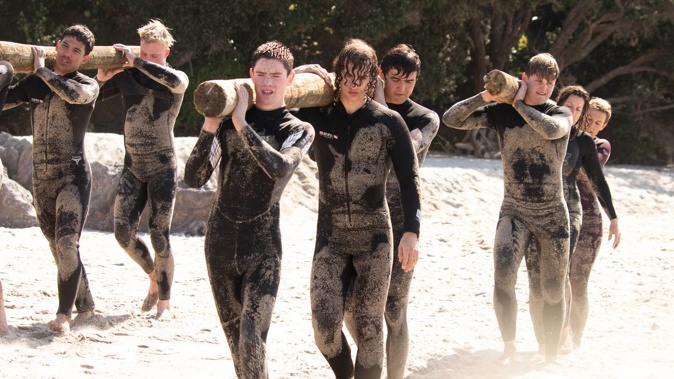
Extreme weather and economic certainty are emerging as major concerns for New Zealand’s young people, research by Youthline shows.
The organisation’s “State of the Generation” report found while mental health remained the most dominant concern for 13 to 24-year-olds, new stressors were rising in prominence.
Out of the 450 people surveyed for the study, 82 per cent said mental health was the biggest issue young people faced in this country.
“Unfortunately, this finding comes as no surprise to our team at Youthline,” said CEO Shae Ronald.
She said helpline data from the last three years showed a 30 per cent increase in demand for counselling and support services and a 10 per cent increase in suicide risk. In all, one in 10 young people had used Youthline’s services over this period.
Social media also remained a commonly cited concern as young people worried about its impact on their mental health, the unrealistic expectations it created, its addictive qualities and the potential for bullying.
On the other hand, social media was also cited as the best way for young people to seek mental health support, with Instagram and TikTok the most likely channels to lead them to contact Youthline - ahead of more traditional channels like school programmes.
The psychological impact of Covid-19 was still being felt by young people, and other issues had also come to the fore in the last two years.
Ten per cent of young people said economic uncertainty was the biggest issue facing young people - up from 4 per cent in 2021.
A quarter of young people said they had been affected by extreme weather events, and half of that group said their mental health had suffered as a result.
“We’re about to experience extreme loss of life/jobs/housing/land etc. because of climate change. [We] can’t run from it, [and I] can’t fix it as just a single individual, so extreme weather causes some stress,” one respondent said.
“I worry about how it will affect those around me, friends and family. It is very much linked to my anxiety about climate change, as they are connected,” another person said.
Ronald said the findings on economic uncertainty and climate change were “a wake-up call for society”.
“Having directly experienced the effects of climate change, young people are now fearful more extreme weather will occur in the future,” she said.
“Our rangatahi reported a sense of feeling powerless and are worried about the ongoing safety of themselves and their whānau. The impact of the floods earlier in the year also meant that [getting] access to basic needs was difficult, which again impacted young people’s mental health like anyone else.”
/cloudfront-ap-southeast-2.images.arcpublishing.com/nzme/2C4PEGRTAASBRQTJNTDSJX5EUM.jpg)
Youthline chief executive Shae Ronald said there was frustration among young New Zealanders about the lack of collective action against climate change.
There was also a feeling of frustration about the lack of collective action against climate change.
“This report should act as a clear signal to all our politicians in the lead-up to the general election; these are the issues young people in Aotearoa want addressed.”
Another emerging issue of concern was vaping, which was cited as the biggest issue for young people by respondents aged 13 to 15. It was of greater concern than alcohol, drugs and smoking.
Asked about help for mental health, young people identified in-person counselling as the best method of support.
Of those who had not sought support (around 45 per cent), they said it was because they felt their problems were too small. One in 10 people of Pacific descent cited cultural reasons for not seeking help.
“We want rangatahi to feel that their feelings are always valid and worthy of support,” Ronald said.
“That they are never alone. That’s how we can start to turn around the issue of mental health in Aotearoa.”
Take your Radio, Podcasts and Music with you









